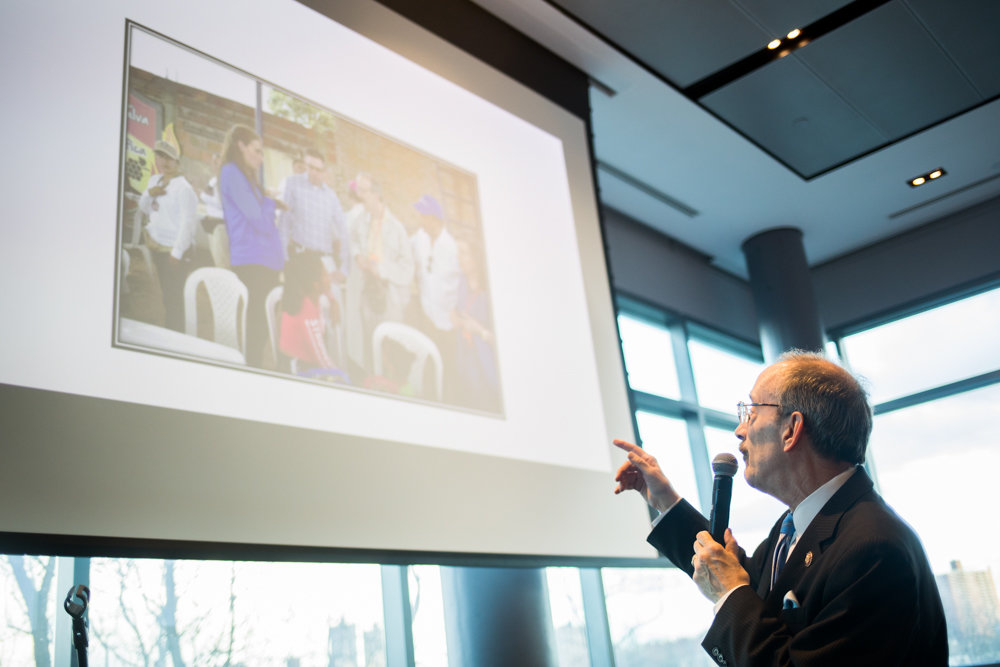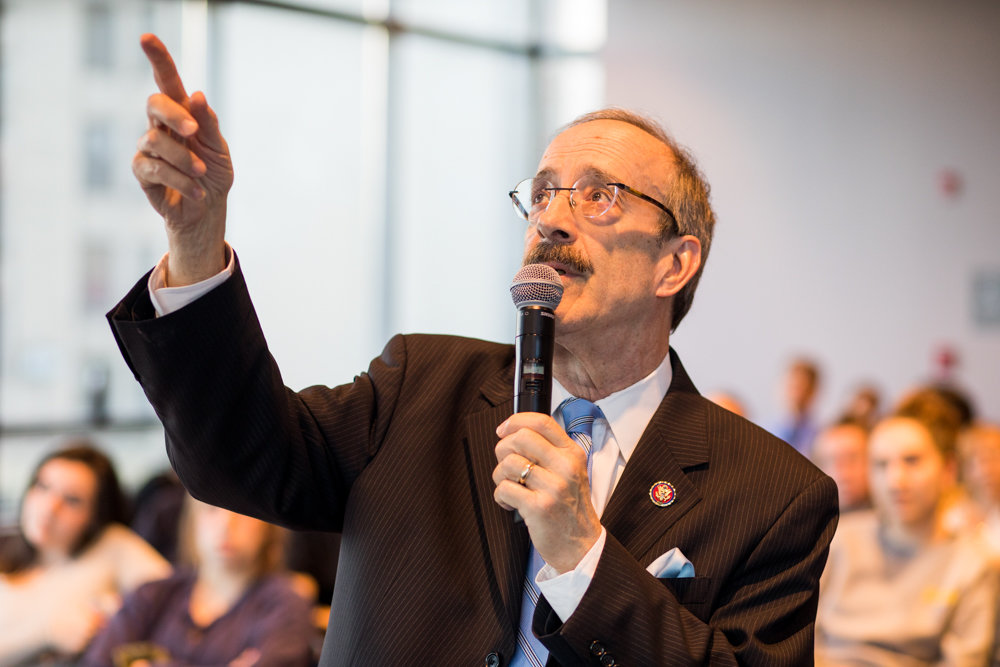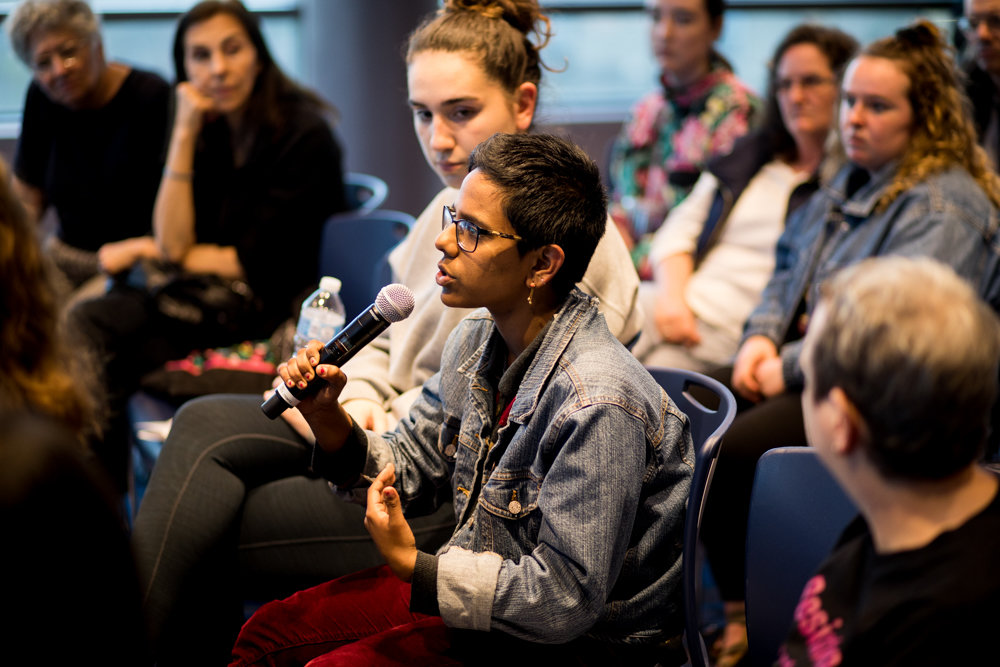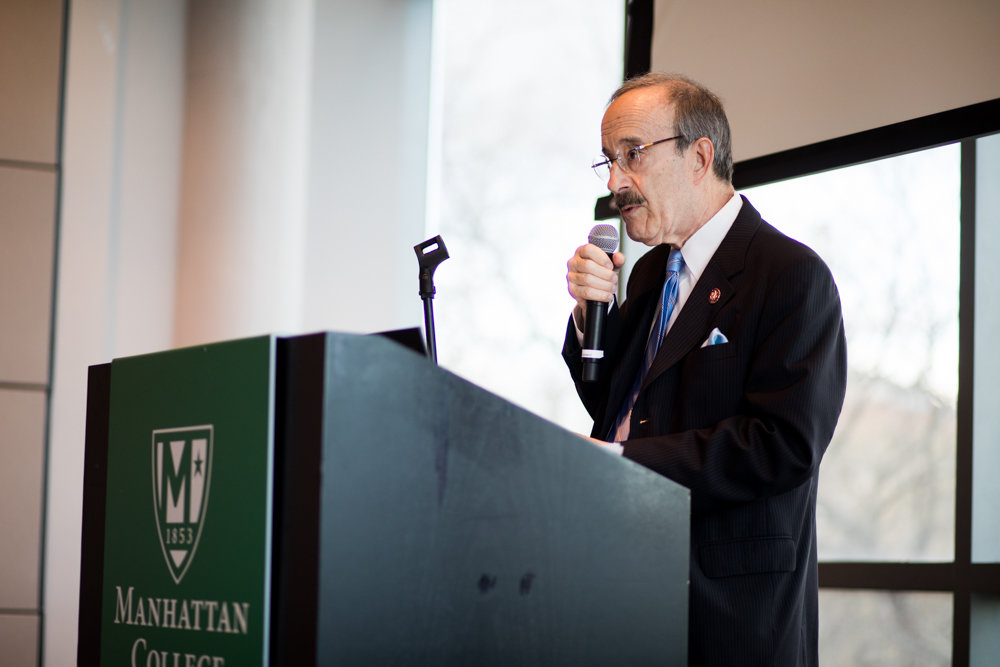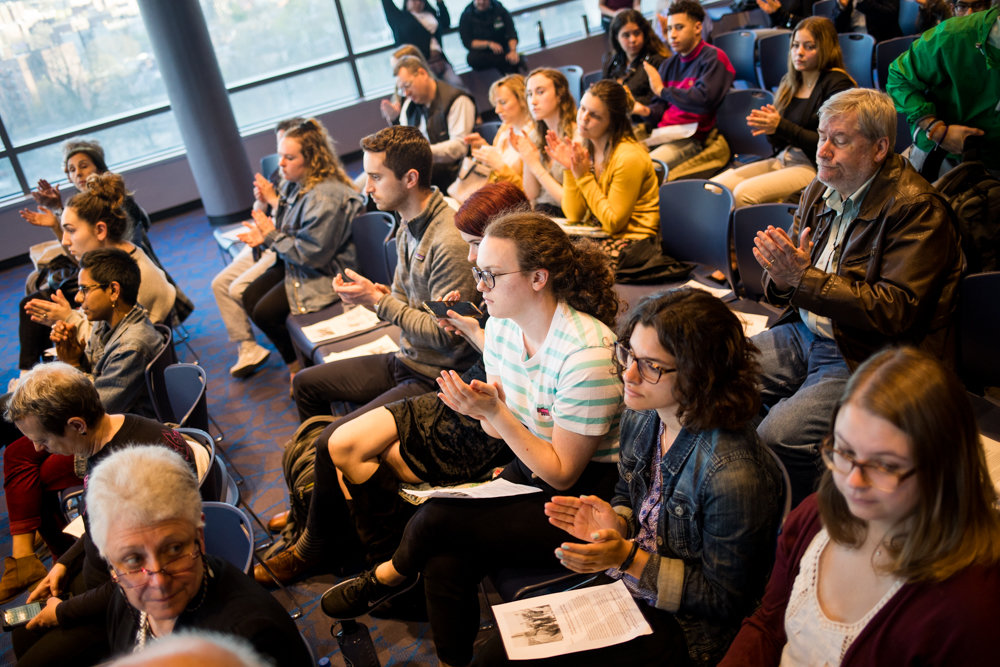Immigration at heart of Engel’s talk
Stories and pictures Eliot Engel brought back from his trip to the Mexican border and Central America depict families willing to risk anything to find a safe home.
Venezuelan women leading small children to the Colombian border with their worldly possessions slung over their shoulders. International aid trucks distributing food to throngs of starving people.
U.S. border detention compounds, crowned with razor wire, in which hundreds of asylum-seekers were crowded in a space meant for no more than 50.
In a talk at Manhattan College, the congressman detailed the plight of refugees fleeing violence and starvation in their native lands. He and several members of Congress traveled to Texas, El Salvador and the Venezuelan-Colombian border. Their aim was to learn about the root causes of immigration and examine the conditions at border detention facilities.
“As chairman of the House Foreign Affairs Committee, I consider it my responsibility to look at those challenges up close,” Engel told the Manhattan College crowd.
Engel’s group toured an El Paso detention center at the Mexican border. Central American refugees fleeing violence in their countries traveled to the U.S. border — often on foot — seeking asylum. The Trump administration continues to detain refugees, often separating families and placing individuals in crowded holding cells. It’s been a major sticking political point between Trump and Democrats like Engel.
“What I saw there was overcrowded rooms, far too many people housed in spaces well beyond maximum capability,” Engel said. “I saw the faces of those people fleeing for their lives, and I saw the faces of those who want better for themselves and their children.”
Before arriving at the border, Engel’s group saw photos of people being held under a bridge at the facility. By the time Engel arrived, however, that detention area was empty. They heard later border patrol agents moved the detainees to another site, a place Engel described as “another grossly inadequate facility.”
In El Salvador, lawmakers heard from stationed FBI agents tasked with training local law enforcement.
“These units teach Salvadoran police officers and work closely with them to take down gang leadership structures in the United States and Central America,” Engel said. “They literally make our communities and constituents safer just as they make Salvadorans safer.”
Political unrest in Venezuela has driven people from their homes and across the Colombian border where aid workers are spending endless hours helping refugees.
“One of the Catholic churches was feeding people, hundreds and hundreds, maybe thousands of people,” Engel said.
During the lawmakers’ trip, Trump announced he would cut foreign aid to Honduras, El Salvador and Guatemala. Many of the positive programs the group oversaw, Engel said, would end without American aid.
“We should always remember that the next time the president talks about MS-13, the next time he stokes fear by saying these brutal criminals are taking over neighborhoods,” Engel said. “Let’s remember, he’s the one who wanted to cut all the money for these programs.”
By uniting a bipartisan group of House members, Engel said he would try to restore foreign aid to Central America. Increasing the number of judges processing asylum applications at the border also should ease overcrowding and reunite families sooner. Studying the cause of immigration and reversing domestic problems could return or keep people in their own country.
“The notion of building walls to keep people out of our country is just not part of America’s character and tradition,” Engel said. “And frankly, it’s offensive.”
He praised strong borders and careful vetting of people allowed into the country.
“Terrorism is always a concern,” the congressman said. “But you don’t deal with those concerns by treating people as cattle, and we should build a wall to keep them out.
“I think we need to build bridges, not walls.”

